If you’re already practising the basics of inventory management within your business and you still feel like you’re spending too much time on fulfilling orders, then it’s probably time to consider third party logistics (3PL).
The big selling point of using a 3PL is specialization. Think about it this way: your own business is optimized for accomplishing a certain set of things — perhaps selling products or creating them. You’ve sunk time and money into fine-tuning your business to be great at these things, but that also means that you couldn’t spend time or money on other aspects, like establishing a very efficient supply chain or really fast shipping.
If you’re looking to save time and money on your shipping and storage, you’ll want to partner up with a business that focuses on doing those things really well.
A good 3PL can help your small business scale logistics up and down as needed, without requiring a significant investment in assets like vehicles or property. This allows you to ship more orders during your busy season, and then scale your storage and your fulfillment labor back down when you don’t need as much.
First party logistics (1PL)
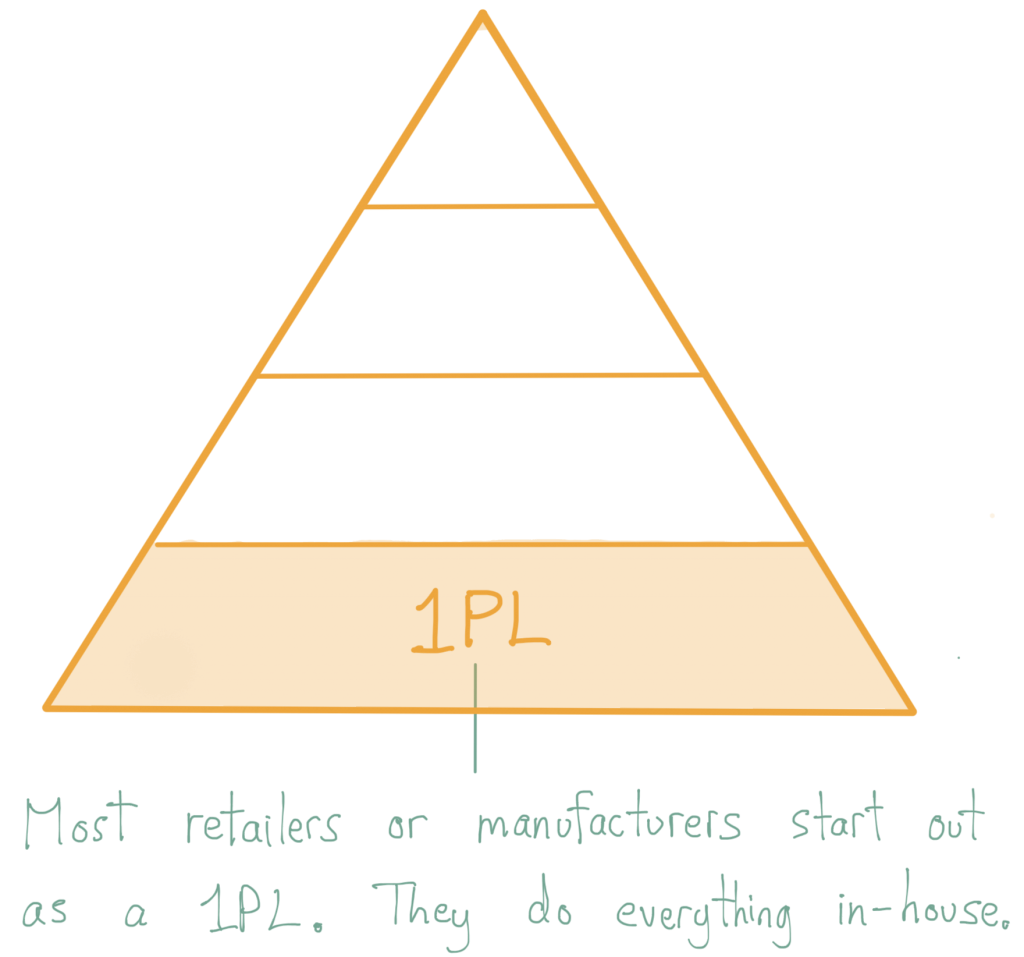
The bottom layer of the logistics pyramid represents first party logistics (1PL). If you manage a supply chain by doing things like ordering materials, tracking inventory, and fulfilling orders, then you already know what a 1PL is: you are one.
Most businesses start out as a 1PL because there simply isn’t enough available cash to outsource tasks to save time. However, as your business earns more and you can afford to invest in proper warehouse processes, that’s when you’ll want to look further up the logistics pyramid.
Second party logistics (2PL)
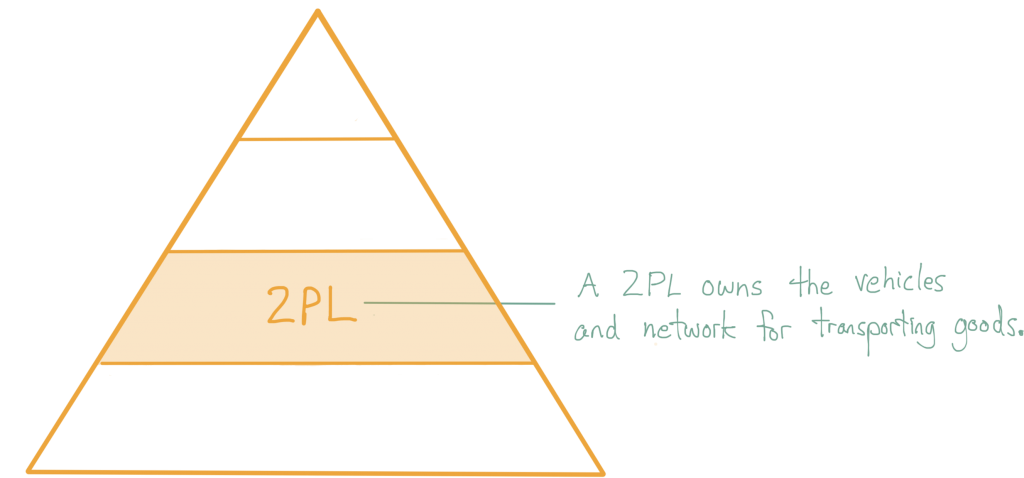
Second party logistics refers to businesses that own the means for transportation, like an airline or a company that owns a fleet of trucks. You’ve dealt with a 2PL if you’ve ever used another company to ship or deliver your products.
UPS is a good example of a company that provides 2PL services. Most interaction with UPS requires you to get an order to them, and they take care of delivering and providing the tracking information.
One important thing to remember is that businesses can belong to more than one logistics level. So a 1PL can manage its own fulfillment, but also act as a 2PL in other circumstances.
Third party logistics (3PL)
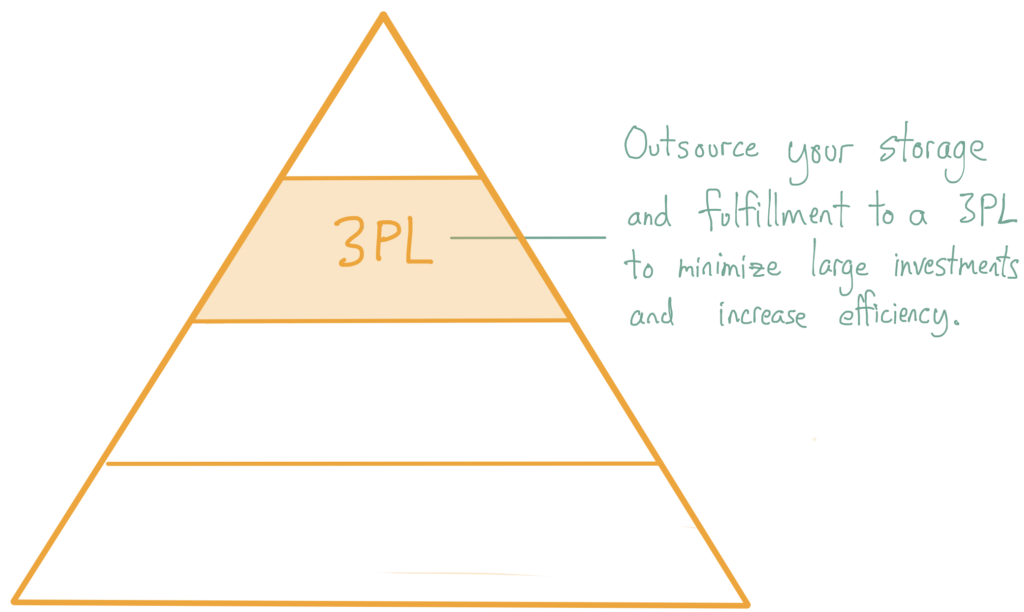
As mentioned at the beginning of this article, if you’ve already spent time optimizing your processes but you’re still getting behind on orders, then it’s time to look into a third party logistics (3PL) solution. A third party logistics company can take care of a lot of things for your business, including:
- labor for receiving and fulfilling orders
- providing storage space
- optimizing logistics with technology like tilt trays and pick-to-light systems
- offering better rates with 2PLs through bulk discounts
Some 3PL companies you may have already heard about are Amazon FBA and ShipBob. These companies have invested their capital in creating a lean, mean logistics machine. In exchange for a fee, you can benefit from their investments by scaling your own storage and fulfillments up and down as needed.
This also saves your business time and effort in training extra staff for fulfillment and eliminates the hassle of managing and reordering extra materials like packaging and mailing labels. If you’re worried about giving up control, some 3PLs like ShipBob offer detailed online dashboards to show you the current status of an order — and they’ll even handle custom packaging.
Fourth party logistics (4PL)
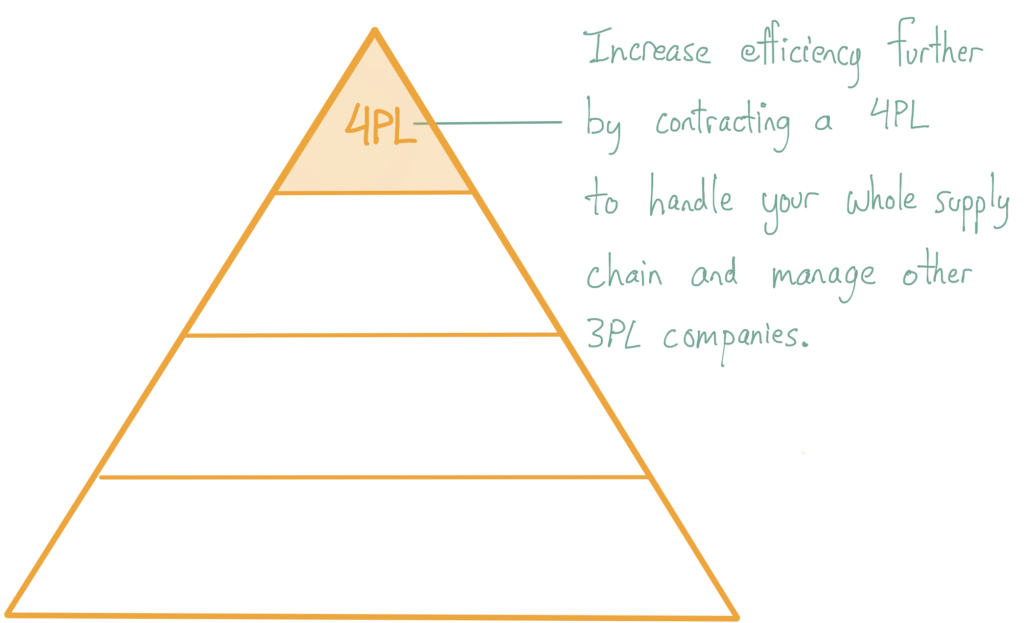
While 3PLs can be incredibly helpful, they don’t take care of all of your logistical needs. For example, 3PLs don’t usually provide online e-commerce sites for your customers to order from, and customer transactions (i.e., taking payment).
For businesses that want even more assistance with logistics, fourth party logistics is an option. A 4PL company acts as contractor for your logistics and essentially takes responsibility for your supply chain. They do all of the things that 3PLs do for you, but go further.
Working with a 4PL should provide you with an end-to-end solution that takes care of procurement, payments and more. They’ll do this by leveraging their own technology and expertise, as well as the assets of other 3PLs that they work with.
This interview with Brooke Anderson makes a great point about Amazon acting like a 4PL in the business-to-consumer space. Amazon provides the marketplace to sell on, handles the payments, and also offers storage and fulfillment solutions through Amazon FBA. Amazon has a lot of capital in place already, but the key to their success is their logistical expertise and the technology to tie everything together. A good 4PL can offer an Amazon-like experience in a business-to-business (B2B) context.
Bringing it back to your business
The caveat is that 4PLs are really more of an enterprise-level solution, due to the amount of money required to hire one. In fact, there are actually more levels to the logistics pyramid than we’ve outlined here. However, since our focus at inFlow is helping small businesses, we’ve stuck to the levels that you’re most likely to deal with as you grow.
If there’s one thing you take away from this article, it’s that 3PLs aren’t just for big business. If you’re spending a significant amount of your time or money storing products and fulfilling orders, then the time is right to look into a 3PL provider.
In future posts, we’ll cover more concrete examples by reviewing exactly what kind of services 3PLs provide, and what they cost.
inFlow empowers small businesses, just like you, to take total control of their inventory. You can sign up below for a free trial:
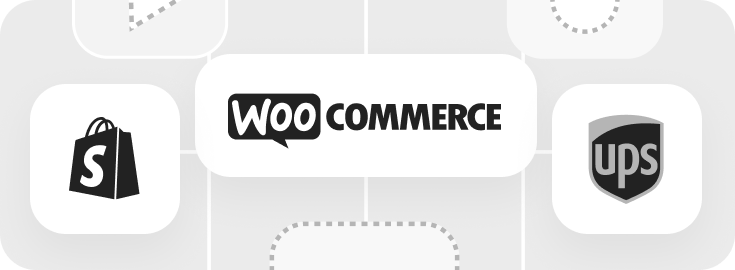


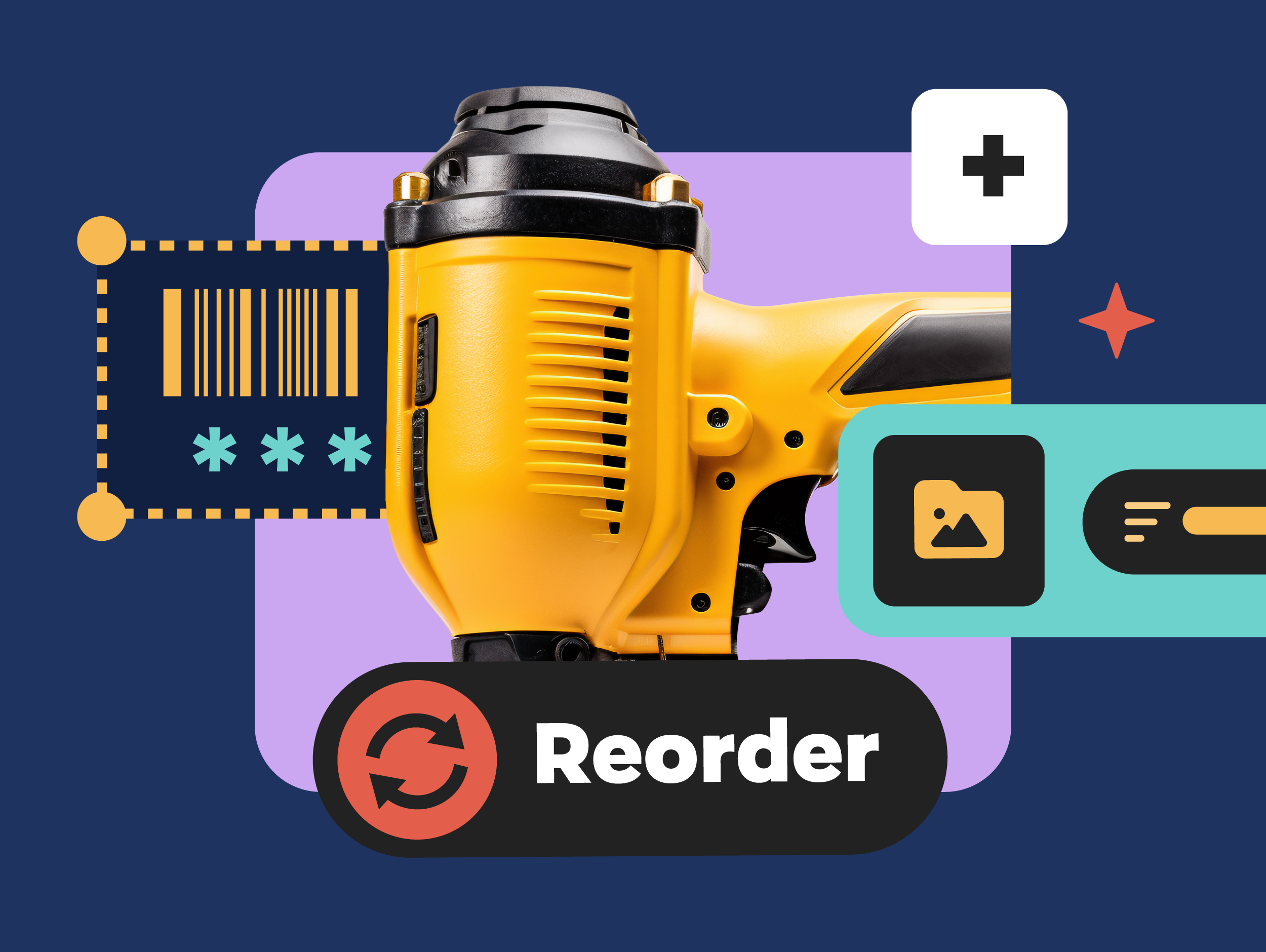

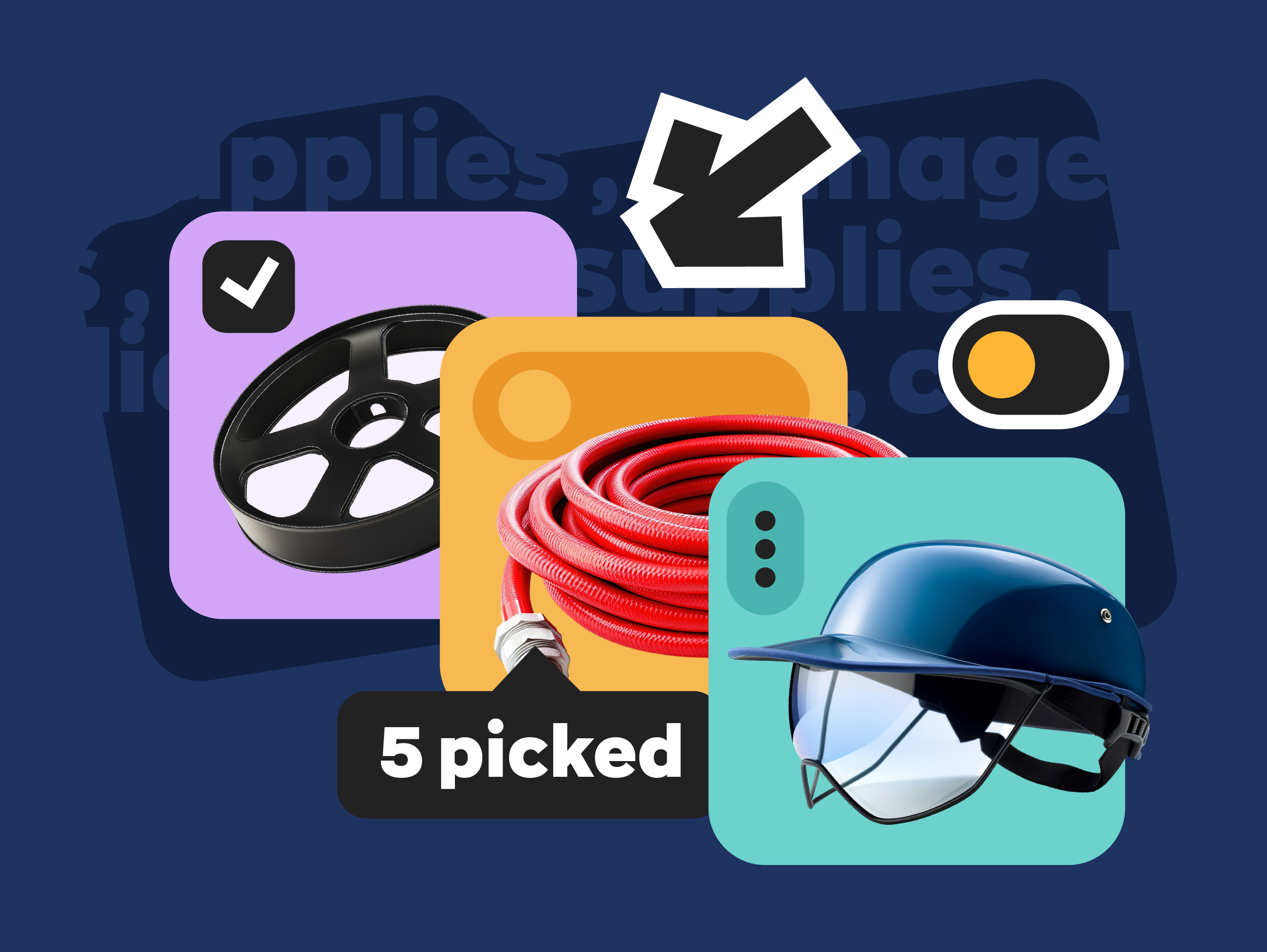
0 Comments